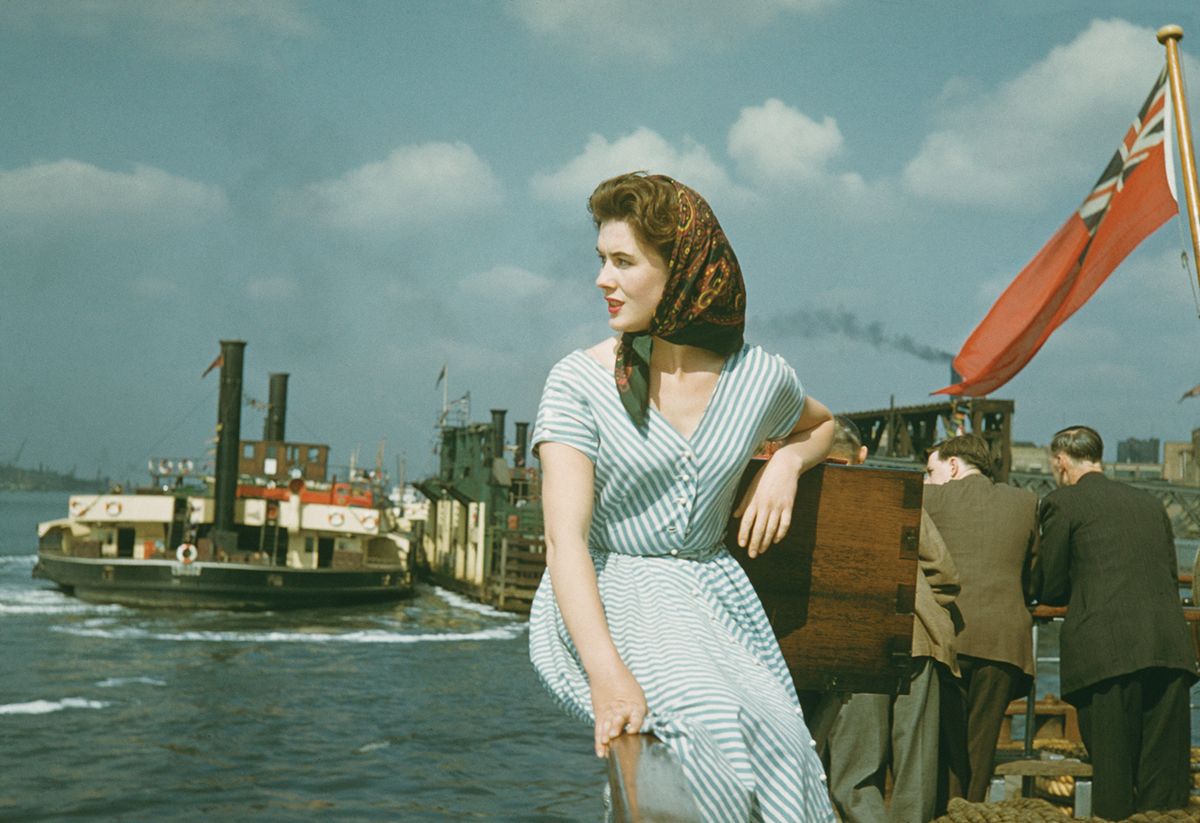The UK photojournalist Bert Hardy (1913-95) shot some of the defining images of mid-20th century Britain—his two cheeky boys in Glasgow’s Gorbals and countless memorable images of the Blitz were among those published by the celebrated British photo-magazine Picture Post, where he was chief photographer between 1941 and 1957.
Bert Hardy: Photojournalism in War and Peace, which opens at the Photographers’ Gallery this week, offers a corrective to Hardy’s longstanding reputation as “the man who took the picture of the two girls on the seafront at Blackpool”, presenting the most comprehensive overview yet of a career that spanned hard-hitting social documentary, war, news, sports, advertising and pure whimsy.
Curated by photojournalism expert Tom Allbeson, a senior lecturer in media history at Cardiff University, the exhibition centres on the Hardy archive, which was recently given to the university. In addition to prints, which are being catalogued with the support of the Victoria and Albert Museum in London, the archive includes advertising tear sheets, correspondence, press passes and camera equipment, and is distinct from the London-born photographer’s Picture Post material held by the Hulton Archive at Getty Images. Having “seen anew the quality and breadth of the work”, Allbeson says, he “jumped at the chance” to curate the exhibition.
As well as around 100 prints, the exhibition, which follows a 2013 show to mark Hardy’s centenary at the Photographers’ Gallery, will include archival materials such as annotated contact prints, giving an insight into pre-digital working methods, and a selection of little-known colour works. At its heart, Allbeson says, are “powerful images that are amongst the best of mid-century photojournalism, alongside some of the best conflict imagery of the 20th century. And then there’s his surreal, witty street photography.”
The quality of the work only makes Hardy’s relative obscurity next to British contemporaries such as Bill Brandt, or the Magnum co-founder George Rodger, more perplexing. One explanation may be the lack of photo credits in Picture Post. Allbeson adds that in the UK “we’ve lagged behind in terms of finding a place for photography on the gallery wall of national institutions”, noting that while the Museum of Modern Art in New York has had a photography curator since 1947, the Tate only followed suit in 2009.
“We’ve cared for our photographic collections, but we’ve seen them as records rather than artistic documents or artefacts in their own right. While other nations have recognised Hardy’s work… we seem to have failed to do that,” Allbeson says. This exhibition may prove a turning point not just for Hardy, but for classic black-and-white photo-reportage in Britain.
• Bert Hardy: Photojournalism in War and Peace, The Photographers’ Gallery, London, 23 February-2 June


